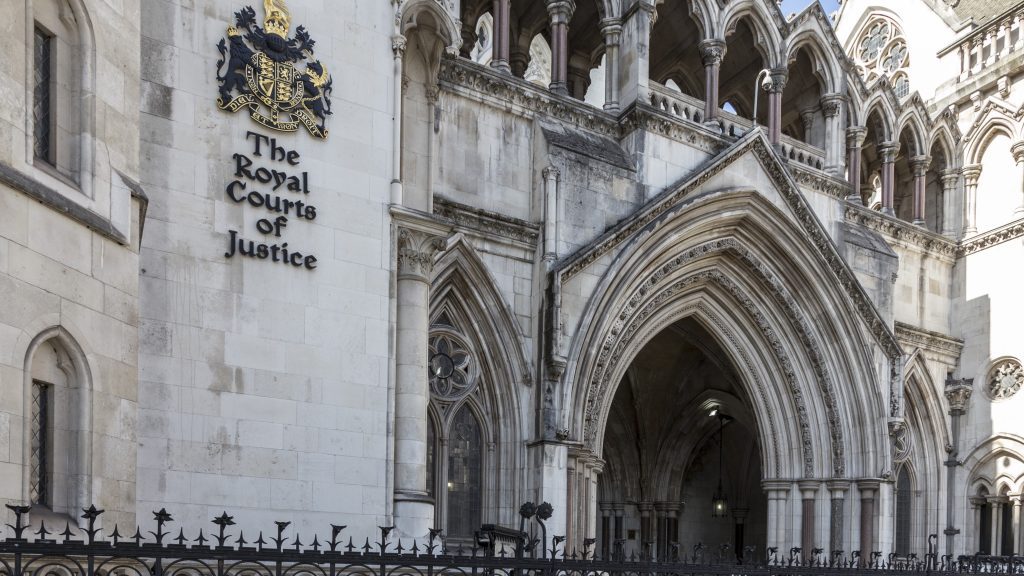The Court of Appeal has today handed down its judgment in the matter of Re D (A Child) (Abduction: Child’s Objections: Representation of Child Party), in which our Partner, James Netto, represented the successful appellant child as his solicitor-guardian.
The case showcases the complex issues engaged with the representation of children and young people at the heart of abduction disputes. The Court has now handed down important guidance in this area of law and referred the matter to the Rules Committee in the light of the issues raised. It is vital reading for practitioners working in this area.
Background
By way of broad background, the case relates to “D” aged 13, and who is the subject of hotly contested custody and abduction proceedings across continents. At the conclusion of an agreed holiday, D refused to return to his home in Singapore, prompting his left-behind mother to launch abduction proceedings in England for his return.
At a first hearing, D was joined as a party to the proceedings through Mr. Netto as his solicitor guardian. The matter then came before a Deputy High Court judge for consideration of D’s mother’s application for his return to Singapore. The judge ordered D’s return to Singapore, essentially against his expressed will. In doing so, the judge considered that although D objected to returning to Singapore, he had been “heavily and unduly influenced” by his father in England. The judge went on to discuss the role of a solicitor guardian, and specifically, what weight should be placed on a solicitor guardian’s evidence on behalf of a child. An appeal to the Court of Appeal then followed.
Appeal
At the crux of this appeal was the role of a solicitor acting as a child’s guardian. In particular, the Court was tasked with considering constraints (if any) on the scope of evidence a solicitor guardian can give. This includes the assessment of a solicitor of the strength or source of a child’s views, either legally, or as a matter of practice.
The matter was of such wider importance that the Court granted Reunite International and the Association of Lawyers for Children permission to intervene.
Decision of the Court
The Court of Appeal unanimously upheld the child’s appeal, overturning the return order. In doing so, the Court held that the trial judge’s assessment of (i) solicitor guardian evidence, (ii) opinion evidence, and (iii) admissibility of opinion evidence from a solicitor was flawed and rendered his decision unsustainable.
Specifically, the Court of Appeal held as follows:
- The trial judge was wrong to conclude that a solicitor guardian’s opinion evidence is inadmissible. A solicitor guardian’s evidence is admissible, and the Court highlighted that “there is no blanket rule that a factual witness may not include opinion evidence in his witness statement… a witness of fact may give opinion evidence which relates to the factual evidence he is giving, particularly if he has relevant experience or knowledge” [1].
- A solicitor guardian’s view as to the strength and nature of a child’s evidence in child abduction proceedings is admissible.
- The judge failed to consider the evidence of the child’s solicitor guardian simply on its merits and rather became engaged in issues concerning the admissibility of opinion evidence.
- The fairness of the proceedings and the determination of the application were all adversely affected by the trial judge’s views on admissibility of opinion evidence, and how the issue was addressed during the hearing.
The Court went on to further discuss the thorny issue of the influence of parents over children in abduction proceedings. Specifically, the Court confirmed that a query about how “authentic” a child’s views are is “typically used when a child’s views are not considered to be the product of or reflecting, in particular, the influence of the taking parent”. Alongside this, the Court of Appeal has reinforced that “a child’s, even a Gillick-competent child’s, views are but one element to be taken into account when the court is exercising its discretion”. Echoing an earlier case [2], the Court restated that “due regard” must be given to the wishes of a child – and that, the older the child, the greater the weight that their objections are likely to carry [3]. This is not however ‘carte blanche’ either way: a judge is entitled to give little weight to a Gillick-competent child’s views if the judge concludes, as the judge did, that those “views have been and continue to be influenced.”
The Court of Appeal held that the order requiring the child’s return could not stand. The matter has been remitted to the High Court for a rehearing.
On appeal, D was represented by Mr. James Netto, Partner at iFLG, instructing James Turner KC of 1 King’s Bench Walk, leading Mr. Edward Bennett, and Ms. Natasha Miller – both of Harcourt Chambers.
James Netto
[email protected]
The International Family Law Group LLP
www.iflg.uk.com
© September 2023
Citations
[1] Quoting Phipson on Evidence, 20th Edition [33-112]
[2] Birmingham City Council v D (Equality and Human Rights Commission and others intervening) [2019] 1 WLR 5403
[3] In re M and another (Children) (Abduction: Rights of Custody) [2008] 1 AC 1288, at [46]
- James Nettohttps://iflg.uk.com/team/james-netto
- James Nettohttps://iflg.uk.com/team/james-netto
- James Nettohttps://iflg.uk.com/team/james-netto
- James Nettohttps://iflg.uk.com/team/james-netto











